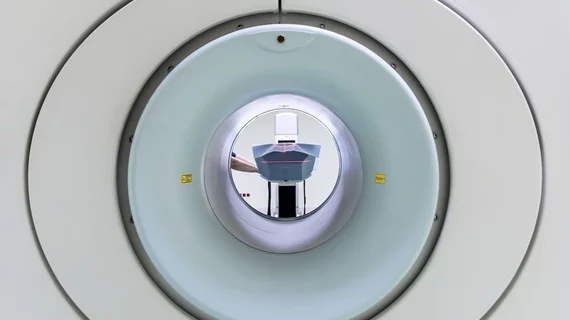Simple solution emerges on arm MRI for obese, claustrophobic patients
Imagers challenged to complete arm MR scans for extremely claustrophobic or morbidly obese patients can do the job with a standard scanner, a wrist and elbow coil—and enough space behind the scanner for the patient to sit or stand alongside.
So reported Nishant Gupta, MD, of Columbia University and colleagues in a study published in the April edition of Skeletal Radiology.
The researchers tested their technique on 20 patients, using a standard (non-open) scanner and a standard wrist/elbow coil.
Comparing diagnostic image data supplied by their innovation vs. conventional MR techniques, the team found no significant difference in image quality.
Diagnoses included triquetral and scaphoid bone contusions and fractures, scapholunate ligament tears, triangular fibrocartilage complex tear and a biceps tear.
Discussing the applicability of the small study, the authors noted that acquiring an additional upright or open MRI scanner may be cost-prohibitive for many practices.
“Our technique enables wrist and elbow imaging of extremely obese and claustrophobic patients who cannot otherwise be imaged using a standard MRI scanner without compromising the image quality that is essential for making a diagnosis,” they concluded.

